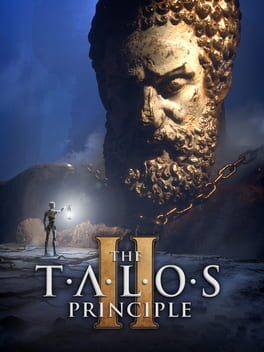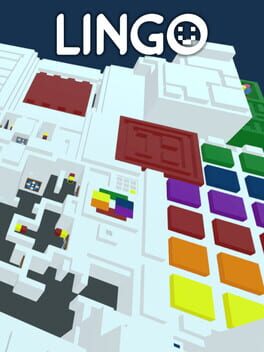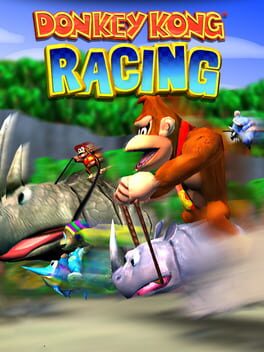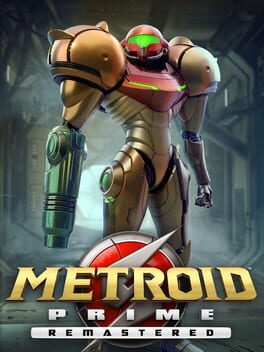scatter
9 reviews liked by scatter
The Talos Principle 2 had had a lot of hype to live up to for fans of the first game, a game that is one of my all-time favorite puzzle games. The first entry seamlessly blended philosophy and puzzles, delivering an experience that never failed to captivate. With high expectations, I eagerly dove into The Talos Principle 2, anticipating the promised improvements over its predecessor.
The visual upgrade in The Talos Principle 2 is unmistakable. Featuring beautiful next-gen graphics and expansive open-world areas for each group of puzzles, it's evident that the studio has made significant strides since the first game. However, this visual splendor comes with a drawback. Navigating the vast landscapes between puzzles, while aesthetically pleasing, became a tedious task, distancing me from the immersive puzzle-solving experience I was craving.
The narrative in The Talos Principle 2 is ambitious, weaving the tales of multiple characters into an overarching story. However, the delivery left me conflicted. Dialogues and interactions felt like an information overload, hindering my connection with the characters and the plot. The desire to be a completionist clashed with a growing disinterest in the narrative, turning the experience into more of a chore than an engaging story. The main story, while solid, could benefit from a more organic presentation.
The puzzle mechanics, a cornerstone of the series, introduced new tools and variations that brought freshness to the experience. The initial progression felt smooth, with new puzzle elements seamlessly integrated into each world. However, a peculiar shift occurred; as soon as the difficulty increased, the area concluded, and I found myself back in a new zone where the difficulty climb started from the bottom again. The puzzles themselves also didn't feel as expansive as some encountered in the first game, making these ones seem comparatively smaller. The lack of consistent challenge detracted from the sense of accomplishment I found in the first game. Despite enjoying the puzzles individually, external factors began overshadowing the joy of problem-solving.
In conclusion, The Talos Principle 2 stands out as a visually stunning and narratively ambitious sequel. Unfortunately, it falls short of achieving the sublime balance found in its predecessor. While the puzzles maintain a level of enjoyment, the excessive narrative and burdensome open-world traversal hinder the overall experience. As a fan of the first game, I couldn't shake the feeling that the sequel sacrificed the tight focus of its predecessor in favor of a grander scale, losing some of the magic in the process.
The visual upgrade in The Talos Principle 2 is unmistakable. Featuring beautiful next-gen graphics and expansive open-world areas for each group of puzzles, it's evident that the studio has made significant strides since the first game. However, this visual splendor comes with a drawback. Navigating the vast landscapes between puzzles, while aesthetically pleasing, became a tedious task, distancing me from the immersive puzzle-solving experience I was craving.
The narrative in The Talos Principle 2 is ambitious, weaving the tales of multiple characters into an overarching story. However, the delivery left me conflicted. Dialogues and interactions felt like an information overload, hindering my connection with the characters and the plot. The desire to be a completionist clashed with a growing disinterest in the narrative, turning the experience into more of a chore than an engaging story. The main story, while solid, could benefit from a more organic presentation.
The puzzle mechanics, a cornerstone of the series, introduced new tools and variations that brought freshness to the experience. The initial progression felt smooth, with new puzzle elements seamlessly integrated into each world. However, a peculiar shift occurred; as soon as the difficulty increased, the area concluded, and I found myself back in a new zone where the difficulty climb started from the bottom again. The puzzles themselves also didn't feel as expansive as some encountered in the first game, making these ones seem comparatively smaller. The lack of consistent challenge detracted from the sense of accomplishment I found in the first game. Despite enjoying the puzzles individually, external factors began overshadowing the joy of problem-solving.
In conclusion, The Talos Principle 2 stands out as a visually stunning and narratively ambitious sequel. Unfortunately, it falls short of achieving the sublime balance found in its predecessor. While the puzzles maintain a level of enjoyment, the excessive narrative and burdensome open-world traversal hinder the overall experience. As a fan of the first game, I couldn't shake the feeling that the sequel sacrificed the tight focus of its predecessor in favor of a grander scale, losing some of the magic in the process.
Lingo
2021
DISCLAIMER:
This review is entirely for my own sake. You are welcome to read it but it may or may not contain spoilers for the whole game.
NOTE: The time played is the one recorded at time of review and it includes all main levels and a few custom maps (which may or may not have taken longer)
Have you ever vibed with a game as soon as you started it? I hadn't felt like this with a game since The Witness, and yet this time it might have been even stronger.
From the non-euclidian environment (aka being teleported all over the place and having to create a mental map of connections and shortcuts), through the rule discovery segments (which take place all throughout the whole game and not just at the beginning since you keep learning more rules and finding new puzzle elements even in the "post-game"), to the puzzles themselves (which always felt creative and fresh, even if sometimes too easy and other times unfairly difficult) I loved every second of it.
Imagine my surprise when while doing clean-up I find out there's a Level 2 that is even bigger than the first. And then there are more smaller official levels and once I'm done with those I keep wanting more and more, so I do what I never do. I turn to community content, and it's actually good?
I can't get this game out of my head. I was waiting to finally be done with it before writing a review, but it just wasn't happening and I had to get some of these thoughs on paper before I exploded.
Overall, I can't recommend this game enough for puzzle fans. I'll be singing its praise for years to come.
This review is entirely for my own sake. You are welcome to read it but it may or may not contain spoilers for the whole game.
NOTE: The time played is the one recorded at time of review and it includes all main levels and a few custom maps (which may or may not have taken longer)
Have you ever vibed with a game as soon as you started it? I hadn't felt like this with a game since The Witness, and yet this time it might have been even stronger.
From the non-euclidian environment (aka being teleported all over the place and having to create a mental map of connections and shortcuts), through the rule discovery segments (which take place all throughout the whole game and not just at the beginning since you keep learning more rules and finding new puzzle elements even in the "post-game"), to the puzzles themselves (which always felt creative and fresh, even if sometimes too easy and other times unfairly difficult) I loved every second of it.
Imagine my surprise when while doing clean-up I find out there's a Level 2 that is even bigger than the first. And then there are more smaller official levels and once I'm done with those I keep wanting more and more, so I do what I never do. I turn to community content, and it's actually good?
I can't get this game out of my head. I was waiting to finally be done with it before writing a review, but it just wasn't happening and I had to get some of these thoughs on paper before I exploded.
Overall, I can't recommend this game enough for puzzle fans. I'll be singing its praise for years to come.
Metroid Prime is a flawed game.
Usually in Metroid games, they do a great job at circling you back around to an area in which you need to be next. It properly conveys to the player where they need to go, all without holding their hand. Prime doesn't do this. Instead, they tend to have you jump around from area to area, looking for a new thing that's suddenly popped up on your scanner. This can lead to a lot of unnecessary backtracking, and takes away a lot of the enjoyment from exploring. It doesn't help that the map design can often be confusing, with a 3D map that looks cool, but is often hard to read.
"Hard to read" is sort of a trend for Metroid Prime. It's dedication to realism is what's responsible for this. Often times, what you can break with your arsenal can be confusing to discern. In the 2D games, you could use shots from your beam canon or your power bombs on were denoted what you can interact with, accompanied with very game-y icons that would appear when hit and faded back to normal geometry if left alone. Prime, with it's realistic terrain, makes this aspect questionable. To add insult to injury, destroying these "lock-and-key" doors can often require the use of your scanner to trigger your ability to even begin to interact with them.
Ontop of all of this is a fetch quest for Chozo Artifacts, locking you out of the final area and it's boss fights until you backtrack throughout the entirety of the map once again. All of this can be so headache inducing. I was hoping the remake would fix these aspects, but alas, they were completely faithful to the original design. This is fairly disappointing, given its such a missed opportunity to fix the weakest aspects of this game, and reform it into something more.
... That's a lot of negatives, I know. It might be surprising to you that I still believe Metroid Prime is something special. Despite it's many flaws, it is yet another one of those games that absolutely nails key aspects of it's design, and falls apart at the seams.
As a first attempt at bringing Metroid into a 3D space, it's a really good attempt. They absolutely nailed the world design, building a believable world that's as rich as it is beautiful. It's a different take on Metroid, being more of a dry, realistic approach to the Metroid universe, but it's done in a way that's faithful to the original games. The exploration and action is spot on, albeit clunky with the constant need to switch between visors, beams, and missiles, (Metroid has always had this problem though, so it's also spot on). Combat can feel really nice, and often times can be challenging. Some of the bosses can be frustrating with how much they need to be hit to open up their weakness, but most of the bosses are great.
The music to the game sets the atmosphere ablaze. It works in tandem with the environments to create these fascinating moods and atmospheres. The overworld to Tallon IV is one of the most beautiful areas in the game, it's rain-soak foliage that's a constant downpour establishes the life that used to be on this planet. As you journey further, you begin to view more aspects of this dying planet, and the corruption that's gone through it. It's remnants are all there though, and nowhere is that more established than in Phendrana Drifts, a snow covered ruins of the Ancient Chozos. Within this bitter tundra are temples that are frozen solid from the broken roofs collapsing in upon itself, with statues erected of a forgotten people frozen in time. It's genuinely awe-inspiring, and it's one of my favorite snow areas in ANY game.
I'm only scratching the surface here, but I think that's why Metroid Prime is so special. The world feels so realized and enchanting, with the graphical fidelity and incredibly strong art direction to aid in pulling you into it's world. With it's dry realism and it's even drier-reading lore, it establishes a universe that's ripe with exploration.
I just wish that the gameplay and the level design reflected that feeling. As of now, Metroid Prime Remaster is a beautifully recreated version to a flawed GameCube game, and it could have been so, so close to being an all time favorite. It's not, but it's still a wonderful little game.
Usually in Metroid games, they do a great job at circling you back around to an area in which you need to be next. It properly conveys to the player where they need to go, all without holding their hand. Prime doesn't do this. Instead, they tend to have you jump around from area to area, looking for a new thing that's suddenly popped up on your scanner. This can lead to a lot of unnecessary backtracking, and takes away a lot of the enjoyment from exploring. It doesn't help that the map design can often be confusing, with a 3D map that looks cool, but is often hard to read.
"Hard to read" is sort of a trend for Metroid Prime. It's dedication to realism is what's responsible for this. Often times, what you can break with your arsenal can be confusing to discern. In the 2D games, you could use shots from your beam canon or your power bombs on were denoted what you can interact with, accompanied with very game-y icons that would appear when hit and faded back to normal geometry if left alone. Prime, with it's realistic terrain, makes this aspect questionable. To add insult to injury, destroying these "lock-and-key" doors can often require the use of your scanner to trigger your ability to even begin to interact with them.
Ontop of all of this is a fetch quest for Chozo Artifacts, locking you out of the final area and it's boss fights until you backtrack throughout the entirety of the map once again. All of this can be so headache inducing. I was hoping the remake would fix these aspects, but alas, they were completely faithful to the original design. This is fairly disappointing, given its such a missed opportunity to fix the weakest aspects of this game, and reform it into something more.
... That's a lot of negatives, I know. It might be surprising to you that I still believe Metroid Prime is something special. Despite it's many flaws, it is yet another one of those games that absolutely nails key aspects of it's design, and falls apart at the seams.
As a first attempt at bringing Metroid into a 3D space, it's a really good attempt. They absolutely nailed the world design, building a believable world that's as rich as it is beautiful. It's a different take on Metroid, being more of a dry, realistic approach to the Metroid universe, but it's done in a way that's faithful to the original games. The exploration and action is spot on, albeit clunky with the constant need to switch between visors, beams, and missiles, (Metroid has always had this problem though, so it's also spot on). Combat can feel really nice, and often times can be challenging. Some of the bosses can be frustrating with how much they need to be hit to open up their weakness, but most of the bosses are great.
The music to the game sets the atmosphere ablaze. It works in tandem with the environments to create these fascinating moods and atmospheres. The overworld to Tallon IV is one of the most beautiful areas in the game, it's rain-soak foliage that's a constant downpour establishes the life that used to be on this planet. As you journey further, you begin to view more aspects of this dying planet, and the corruption that's gone through it. It's remnants are all there though, and nowhere is that more established than in Phendrana Drifts, a snow covered ruins of the Ancient Chozos. Within this bitter tundra are temples that are frozen solid from the broken roofs collapsing in upon itself, with statues erected of a forgotten people frozen in time. It's genuinely awe-inspiring, and it's one of my favorite snow areas in ANY game.
I'm only scratching the surface here, but I think that's why Metroid Prime is so special. The world feels so realized and enchanting, with the graphical fidelity and incredibly strong art direction to aid in pulling you into it's world. With it's dry realism and it's even drier-reading lore, it establishes a universe that's ripe with exploration.
I just wish that the gameplay and the level design reflected that feeling. As of now, Metroid Prime Remaster is a beautifully recreated version to a flawed GameCube game, and it could have been so, so close to being an all time favorite. It's not, but it's still a wonderful little game.
Inscryption
2021
This review won't discuss any spoilers as far as direct plot points and twists go, but it's hard to talk about this game without at least alluding to them. If you wanna play this game, go in blind.
This game is so interesting. The discourse around it of course is how the twists totally change everything and you won't know what to expect. And even with that, I was shocked and blown away. The ending of act 1 where the mold gets broken is where I thought the moment where stuff gets weird was, and then the next act starts with 2 types of visuals completely different from the first and I was caught insanely off guard. The card game itself is pretty fun, it takes some getting used to but once I was understanding it felt super fun, and gratifying to get builds that felt broken. After the first act, the importance of gameplay felt like it went out the window though, for better and for worse. The challenge was significantly cut down, the depth of each system felt less relevant, and my actions felt less impactful. I think a part of this is unavoidable, when your game hinges off of huge game changing twists, after you do it once its hard to create the same level of investment in the game itself, instead of the game being a thing to overcome to get to the next big twist. The same sort of goes for everything else too, the first act really felt like the peak. Not only in gameplay but the vibe, the horror, the mystery, it all felt so tangible and real. After the first act, I had to stop myself for a few days before pressing "new game" because I felt so on edge that I thought it could only get crazier from there and I needed a breather. However, it just doesn't. Don't get it wrong, the rest of the game is solid, but that edge feels lost. It ups the stakes once, and from there the stakes feel on par with your new increased standard for them. Even the ending, probably intended as a twist, was something I was waiting for and expecting from the moment those characters entered the story. Ultimately, the gameplay is extremely solid, the story is compelling, and the spectacle is unlike anything else I've played, but the game kind of sets an expectation and instead of achieving it, just coasts until the end.
This game is so interesting. The discourse around it of course is how the twists totally change everything and you won't know what to expect. And even with that, I was shocked and blown away. The ending of act 1 where the mold gets broken is where I thought the moment where stuff gets weird was, and then the next act starts with 2 types of visuals completely different from the first and I was caught insanely off guard. The card game itself is pretty fun, it takes some getting used to but once I was understanding it felt super fun, and gratifying to get builds that felt broken. After the first act, the importance of gameplay felt like it went out the window though, for better and for worse. The challenge was significantly cut down, the depth of each system felt less relevant, and my actions felt less impactful. I think a part of this is unavoidable, when your game hinges off of huge game changing twists, after you do it once its hard to create the same level of investment in the game itself, instead of the game being a thing to overcome to get to the next big twist. The same sort of goes for everything else too, the first act really felt like the peak. Not only in gameplay but the vibe, the horror, the mystery, it all felt so tangible and real. After the first act, I had to stop myself for a few days before pressing "new game" because I felt so on edge that I thought it could only get crazier from there and I needed a breather. However, it just doesn't. Don't get it wrong, the rest of the game is solid, but that edge feels lost. It ups the stakes once, and from there the stakes feel on par with your new increased standard for them. Even the ending, probably intended as a twist, was something I was waiting for and expecting from the moment those characters entered the story. Ultimately, the gameplay is extremely solid, the story is compelling, and the spectacle is unlike anything else I've played, but the game kind of sets an expectation and instead of achieving it, just coasts until the end.








